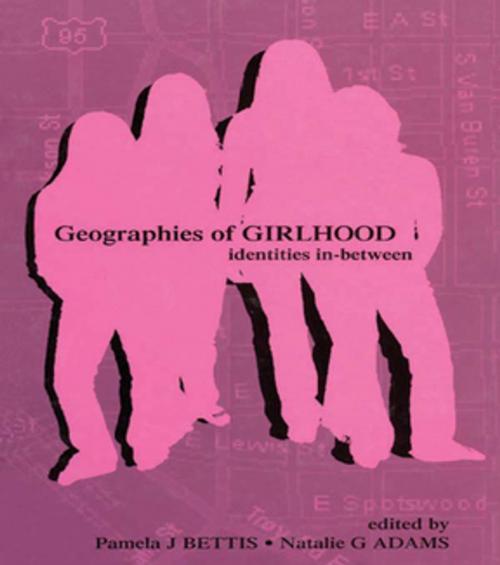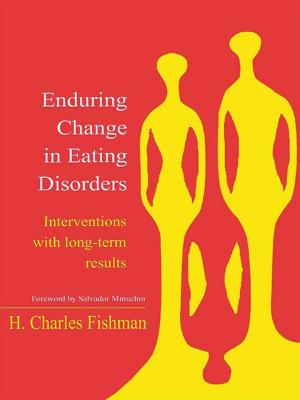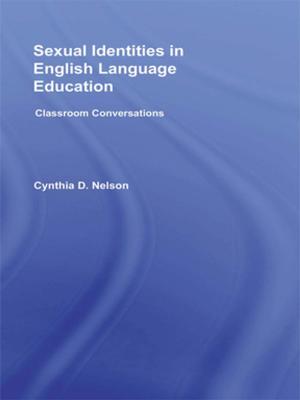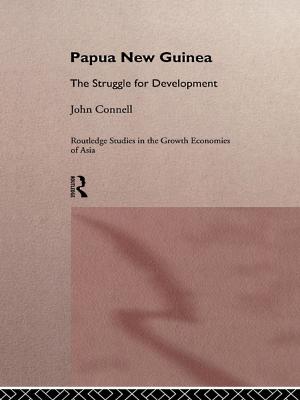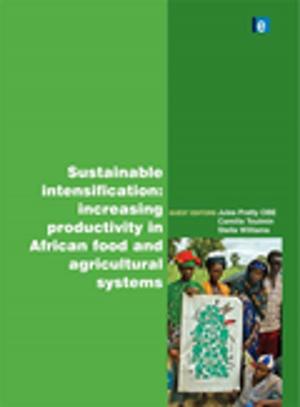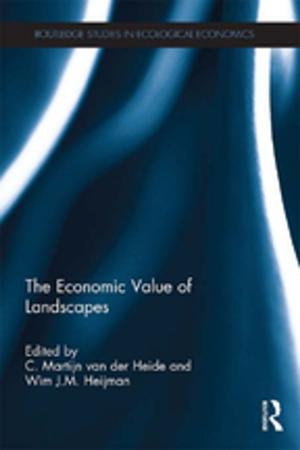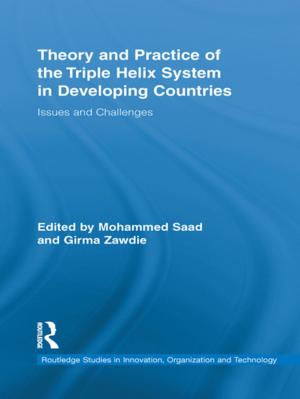Geographies of Girlhood
Identities In-between
Nonfiction, Reference & Language, Education & Teaching, Non-Formal Education, Student & Student Life| Author: | ISBN: | 9781135620981 | |
| Publisher: | Taylor and Francis | Publication: | March 23, 2005 |
| Imprint: | Routledge | Language: | English |
| Author: | |
| ISBN: | 9781135620981 |
| Publisher: | Taylor and Francis |
| Publication: | March 23, 2005 |
| Imprint: | Routledge |
| Language: | English |
Geographies of Girlhood: Identities In-Between explores how adolescent girls come to understand themselves as female in this culture, particularly during a time when they are learning what it means to be a woman and their identities are in-between that of child and adult, girl and woman. It illuminates the everyday realities of adolescent girls and the real issues that concern them, rather than what adult researchers think is important to adolescent girls. The contributing authors take seriously what girls have to say about themselves and the places and discursive spaces that they inhabit daily. Rather than focusing on girls in the classroom, the book explores adolescent female identity in a myriad of kid-defined spaces both in-between the formal design of schooling, as well as outside its purview--from bedrooms to school hallways to the Internet to discourses of cheerleading, race, sexuality, and ablebodiness. These are the geographies of girlhood, the important sites of identity construction for girls and young women.
This book is situated within the fledgling field of Girls Studies. All chapters are based on field research with adolescent girls and young women; hence, the voices of girls themselves are primary in every chapter. All of the authors in the text use the notion of liminality to theorize the in-between spaces and places of schools that are central to how adolescent girls construct a sense of self. The focus of the book on the fluidity of femininity highlights the importance of race, class, sexual orientation, and other salient features of personal identity in discussions of how girls construct gendered identities in different ways.
Geographies of Girlhood: Identities In-Between challenges scholars, professionals, and students concerned with gender issues to take seriously the everyday concerns of adolescent girls. It is recommended as a text for education, sociology, and women's studies courses that address these issues.
Geographies of Girlhood: Identities In-Between explores how adolescent girls come to understand themselves as female in this culture, particularly during a time when they are learning what it means to be a woman and their identities are in-between that of child and adult, girl and woman. It illuminates the everyday realities of adolescent girls and the real issues that concern them, rather than what adult researchers think is important to adolescent girls. The contributing authors take seriously what girls have to say about themselves and the places and discursive spaces that they inhabit daily. Rather than focusing on girls in the classroom, the book explores adolescent female identity in a myriad of kid-defined spaces both in-between the formal design of schooling, as well as outside its purview--from bedrooms to school hallways to the Internet to discourses of cheerleading, race, sexuality, and ablebodiness. These are the geographies of girlhood, the important sites of identity construction for girls and young women.
This book is situated within the fledgling field of Girls Studies. All chapters are based on field research with adolescent girls and young women; hence, the voices of girls themselves are primary in every chapter. All of the authors in the text use the notion of liminality to theorize the in-between spaces and places of schools that are central to how adolescent girls construct a sense of self. The focus of the book on the fluidity of femininity highlights the importance of race, class, sexual orientation, and other salient features of personal identity in discussions of how girls construct gendered identities in different ways.
Geographies of Girlhood: Identities In-Between challenges scholars, professionals, and students concerned with gender issues to take seriously the everyday concerns of adolescent girls. It is recommended as a text for education, sociology, and women's studies courses that address these issues.
